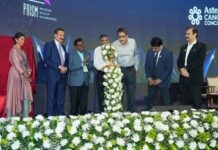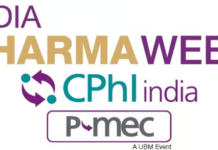New Delhi February 12, 2014:- Following is the text of Prime Minister, Dr. Manmohan Singh’s remarks at the Victory over Polio Celebrations in New Delhi today:
“This is indeed a historic day. It is a day that we have worked for tirelessly and awaited equally anxiously. Now that it has dawned, it is also a day that brings us great pride. And therefore it gives me immense joy so many of you have joined us and we in India celebrate three years without polio.
India’s victory over polio is no ordinary achievement. Until recently, despite years of concerted efforts, India accounted for more than half of the world’s polio cases. The virus from India travelled to countries far and near. Therefore, it says something about our strong commitment and our determination to eradicate this crippling disease from our midst that, within a few years, we have managed to reach a stage where we can be certified polio-free, thus reaching a goal that we had set for ourselves about a decade and a half ago.
This most impressive achievement can be attributed to strong political will, assured financial commitment by our Government, robust oversight of the strategy adopted by us and valuable support from the international community at large. Today, I would like, like previous speakers to remember and thank, above all others, the nearly 2.3 million vaccinators and one hundred and fifty thousand supervisors, together with the officials and non-officials, without whose efforts we would not be here today. I salute all of them. The entire nation is grateful to each and every one of them. This would not have been possible without their tireless efforts.
India’s achievement demonstrates that polio can be eradicated despite many obstacles and adverse circumstances. This development is not without significance for those countries that are still afflicted by this blight. I sincerely hope that what we have been able to do will serve as an example and give the global community greater confidence that polio will soon be gone from the face of the earth in much the same way as small pox has.
But until polio is eradicated globally, the risk of the virus returning will remain for India. We will therefore need to continue to protect the newborn and the infants in our country through the administration of the vaccine. The Government remains totally committed to continue those efforts even beyond certification and until global eradication is achieved.
The deployment of more than 8 lakh ASHA workers in our country was a timely impetus to the polio eradication programme. It is now our duty to follow the path laid by this Programme in other areas. In particular, we should try and deliver life-saving vaccines to every child across the length and breadth of our country. Even the remotest of corners of our country should achieve full immunization of all children against preventable diseases. That’s our goal and that’s our commitment.
However, universal access to safe vaccines is only one of the many components of preventing disease and promoting good health. The Government of India is committed to the achievement of Universal Health Care, which is only possible with the strengthening of public health systems all over the country. We are addressing this through our National Health Mission, which has improved the availability of quality healthcare for people, particularly for the weaker sections of society, such as rural people, women, children and the poor.
Our Government is also making significant and strategic investments to reduce maternal and child mortality. We are committed to making every effort towards achieving the Millennium Development Goals 4 and 5. The Reproductive, Maternal, Newborn, Child and Adolescent Health Programme in India is a strategic approach for accelerating child survival and improving maternal health. It has adopted the polio eradication model, and has deployed considerable resources in the focus states.
While these are no doubt formidable challenges, our success in polio eradication has made us more confident of achieving our objectives. The legacy of the polio eradication programme is, therefore, bound to endure and we are determined that its lessons will not be forgotten in a hurry.
Let me close by pledging that the Government of India remains committed to ensuring the success of the many national health programmes and broad-basing them by taking them to every corner of our country, particularly to the most under-served sections of society. It is only by ensuring a healthy and disease-free future for our children that we will be able to reap the true demographic dividend of our country, which is essential for us to grow and deliver higher levels of social and economic development to all our citizens. This is a national enterprise and I urge all of you to be a part of it.
With these words I once again join you all in celebrating this historic day.
























